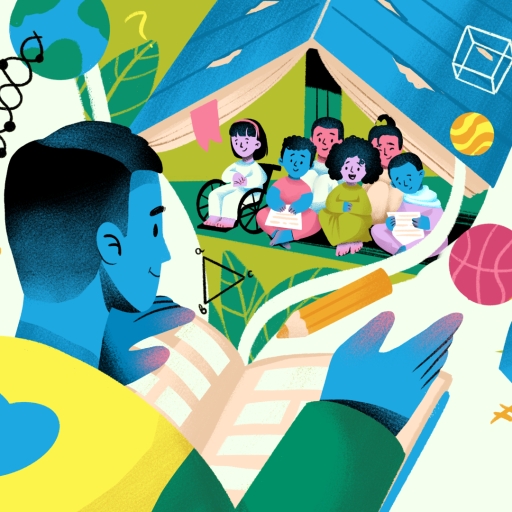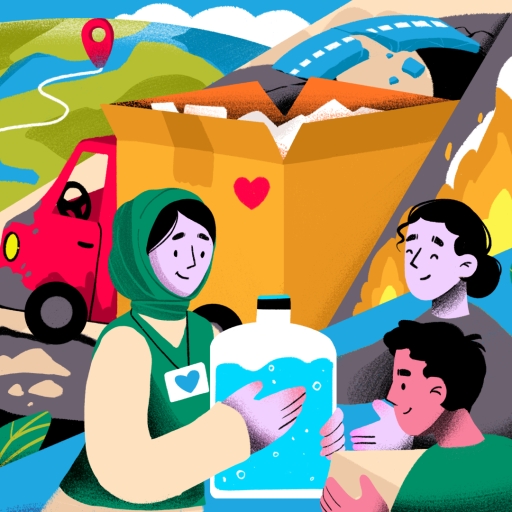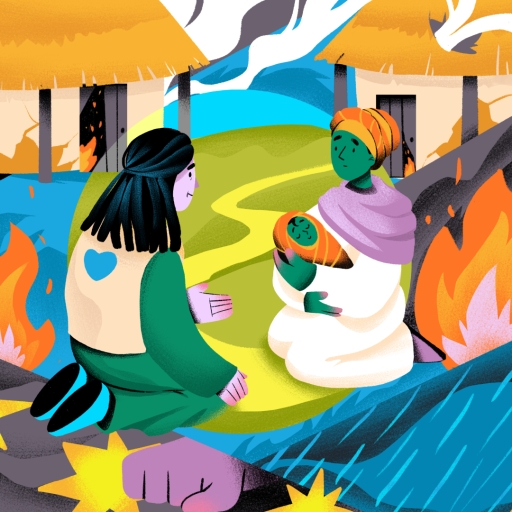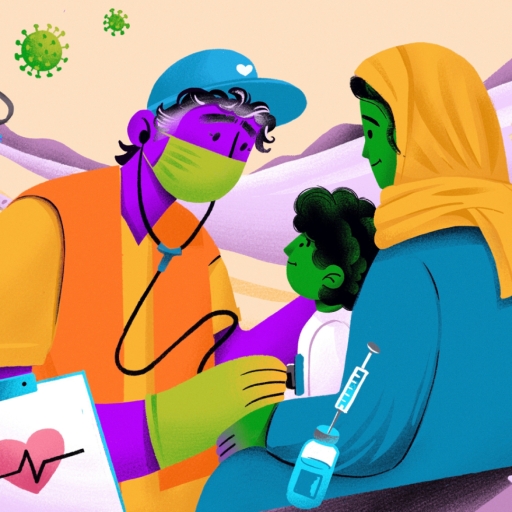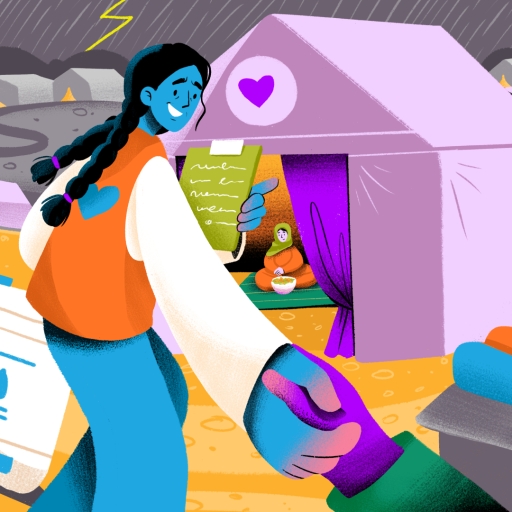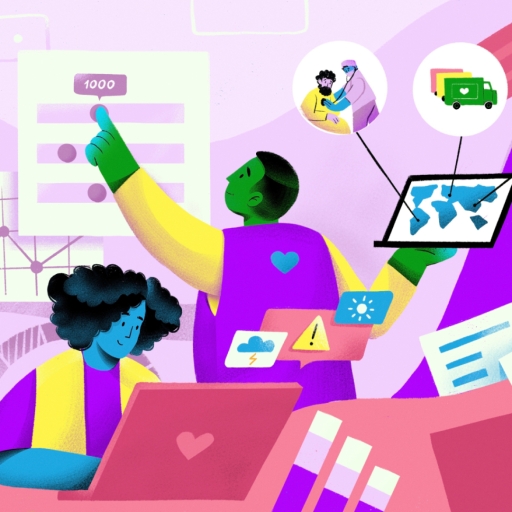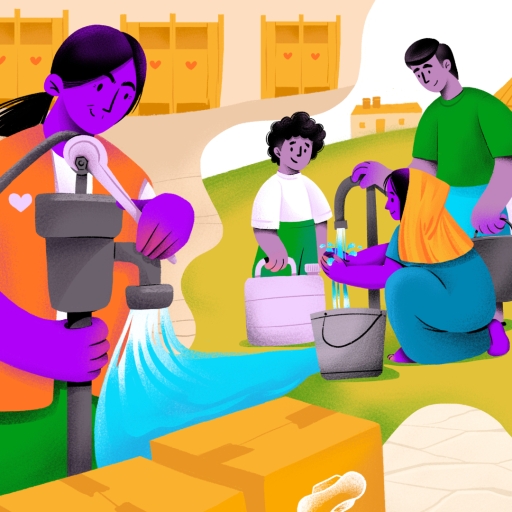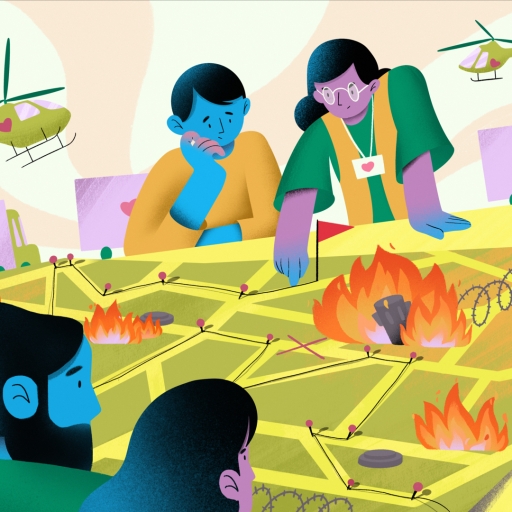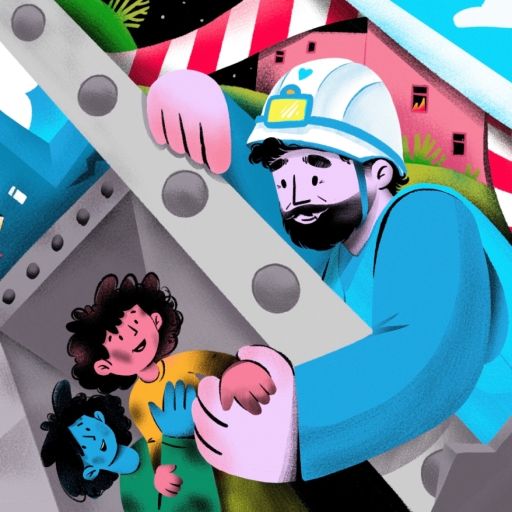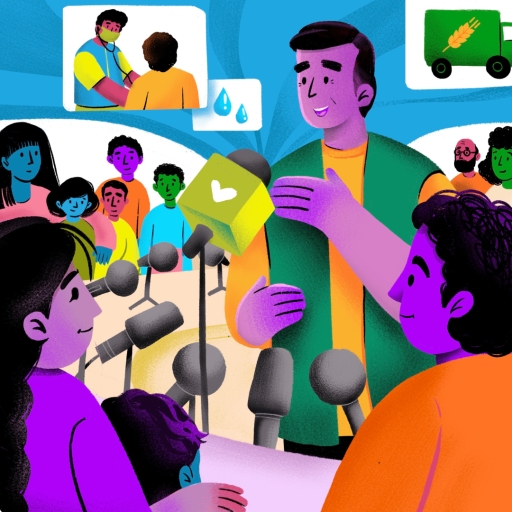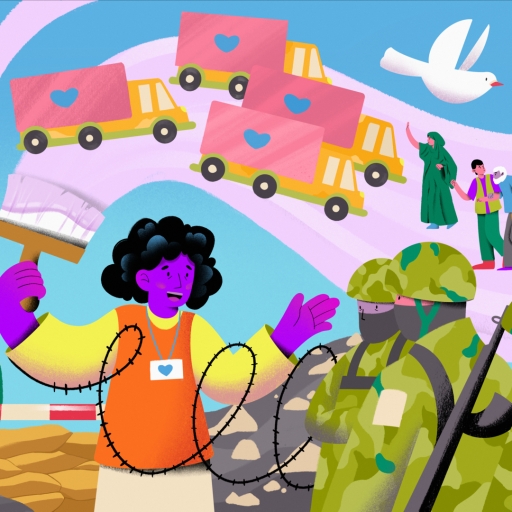The Protection Officer
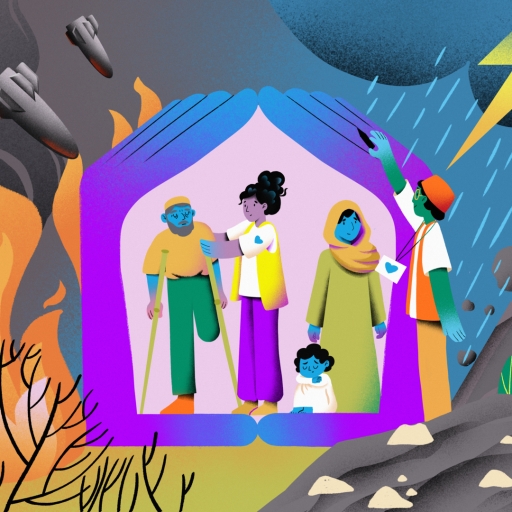
Weather shocks, insecurity and conflict put people’s lives in danger and erode their well-being. Protection officers help people stay safe, recover from harm and access their rights. While States have the primary responsibility to protect their people, protection officers ensure authorities and other actors are aware of their protection obligations, and they advocate to bring behaviour in line with the basic norms of humanity, human rights and international humanitarian law.
Protection officers have a wide range of duties. They may search for missing persons and reunite separated families, and they speak with detainees and the displaced and wounded to understand their needs. Some provide medical care, legal advice and psychosocial support, or they give information about such services to survivors of sexual violence.
In conflict settings, protection officers may clear mines and explosive ordnance. They also help ensure that aid itself does not create risks, such as by making sure camps are well-lit and as safe as possible.
